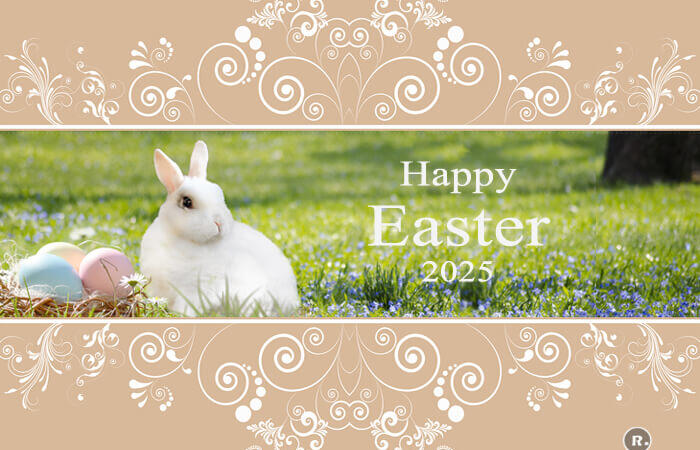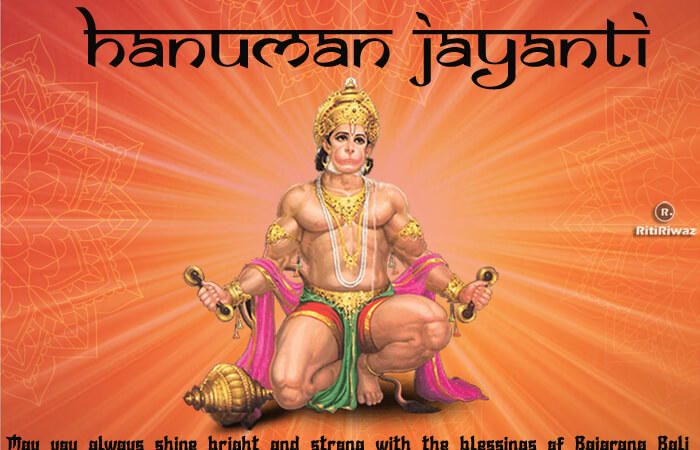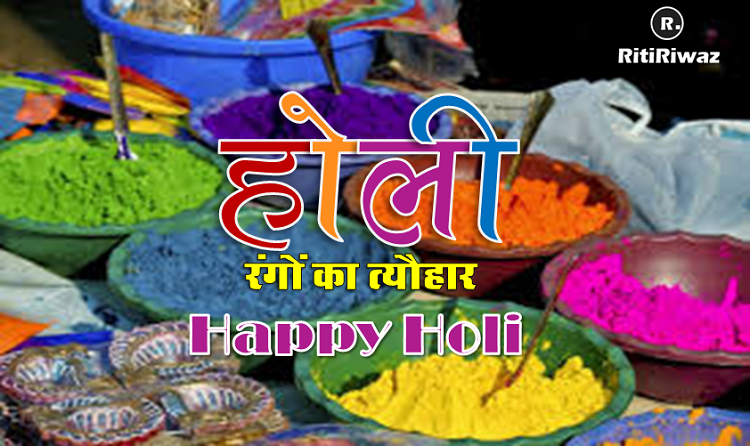Bihu Festival In Assam
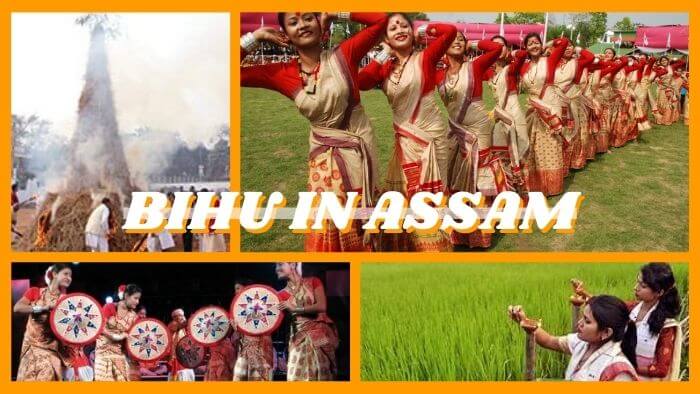
Assam is a land of fairs and festivals. The people of Assam enjoy each and every festival to the fullest, irrespective of caste, creed, and religion. Assamese culture distinguishes itself remarkably from the rest of India via the cultural festivities that happen throughout the year and Bihu is one of them.
Bihu (Assamese: বিহু) denotes a set of three different cultural festivals of Assam and celebrated by the Assamese diaspora around the world. It denotes mainly three different festivals and is always associated with farming. The three festivals are Rongali Bihu, Kaati Bihu, and Magh Bihu. It is interesting fact to note that, each Bihu marks a distinctive phase in the farming calendar. Bihu dances are performed during the Bihu festival.
The Three Bihus
The tradition of Bihu deals with practices related to cultivating the land and raising livestock. The rituals of the festival are closely associated with ideas about the promotion of agricultural prosperity, the transition of the seasons, and the mode of living in a rice-growing society in a tropical, flood plain ecosystem.
Bohag Bihu
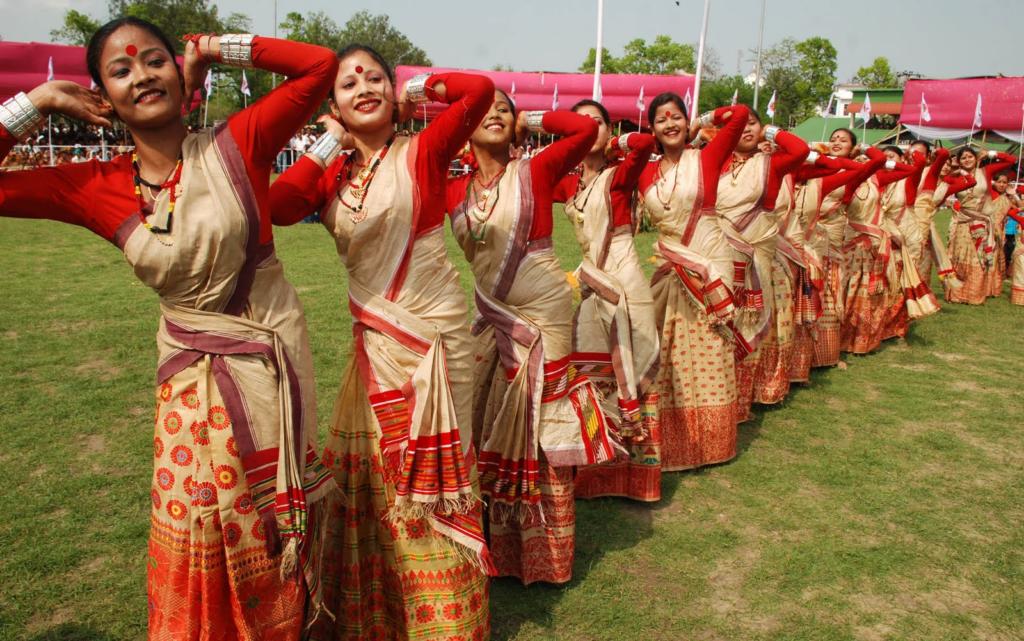
The festival is associated with the beginning of the New Year and the crop-planting season Bohag, or springtime Bihu, which is held in the first month of Bohag (Mid-April). Bihu is also an irreligious festival and is celebrated by all Assamese people irrespective of caste, creed, religion, specific faith, or belief. This festival is not solely restricted to the Assamese community but is prevalent among various tribes living in Assam.
Rongali Bihu or Bohag Bihu is the festival that refers to the onset of the Assamese New Year (April 14th of every year), which is the advent of seeding time. Rongali Bihu is celebrated over several days. At this time of the year, the Assam valley becomes vibrant, colorful and the air is filled with the sweet fragrance of exotic spring flowers such as Kopou Phool, Keteki, Nahor. Also filling the skies with joyous songs are migratory birds such as Kuli, Keteki. During Rongali Bihu, ladies are busy weaving Gamosas and Mekhela Chadors (the traditional Assamese 3 pieces costume). The ladies also make different types of traditional snacks called ‘Pithas’ such as Til, Ghila, Sunga, Monda, Tekeli Pithas, and Laroos (different kinds of snacks made out of rice flour, coconut, molases, or sugar).
Kongali Bihu

Kati Bihu or Kongali Bihu is celebrated during the Assamese month of Kartik and marks the completion of the sowing season. It usually falls in mid-October and coincides with the autumnal equinox. This Bihu is often called Kongali Bihu because there is a scarcity of crops during the period of this festival. Saki (earthen lamps) are lighted in paddy fields praying for a high-quality crop. Lamps are also lighted around the houses.
Suggested Read: Culture and Tradition of Assam
Bhogali Bihu
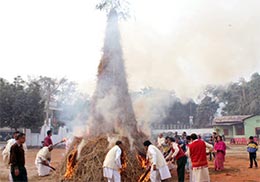
Magh Bihu is basically the harvest festival of Assam and marks the end of the harvesting season in the month of Magh (January-February). It is also called Bhogali Bihu because the celebration of this Bihu is mostly centered around community feast as Bhog means eating and enjoying. The night before Magh Bihu is called Uruka, the night of feast when all villagers gather and spent their whole night in ‘Bhelaghar‘. The most significant part of this Bihu is the huge bonfires called ‘Meji’ around which, people gather on the eve of Bihu and feast. The Bhelaghar huts are burnt at the end of the festival. The next morning they gather to light the Meji, a large bonfire, and pray for a better harvest, better health, and better future in the year ahead.
The festival also marks the Makar Sankranti festival which is celebrated in India marking the end of the winter months and the beginning of warm days. Magh Bihu is celebrated at a season when winter is about to go. It is believed that the fire of Meji burns the winter out along with all the evil powers of the world. It is hoped to bring peace, prosperity, and abundance of harvest for the next years.


